14. You Can’t Handle The Truth – A Few Good Men (1992)
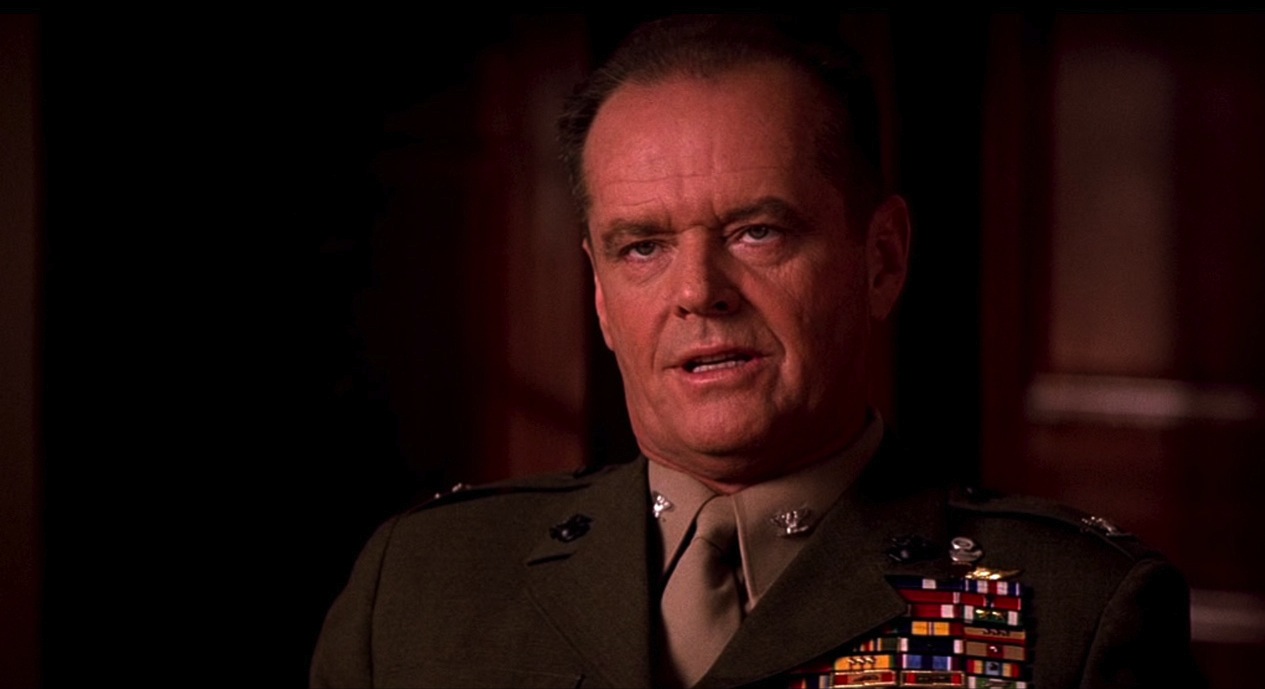
“You can’t handle the truth!” is so ingrained in pop culture that it’s become tough to take such a line seriously. But back in 1992, fresh off the heels of Rob Reiner’s A Few Good Men, the infamous line was merely the tipping point for an all-time freak out. Thrown on the stand in connection with the murder of a U.S. Marine, Colonel Jessup (Jack Nicholson) and lawyer Daniel Kaffee (Tom Cruise) hash the details out to the tune of slowly rising tension in the courtroom.
Between Cruise’s pestering energy and the Colonel’s steadfast annoyance, things explode into a soliloquy on what it takes to protect the American way.
Rookie screenwriter Aaron Sorkin weaves a blanket of verbal beauty for Nicholson to cozy up to, and the bravura delivery of such frazzled content makes for an indelible image. That the necessary evil of such a military commander “saves lives” raises questions that go beyond right and wrong – maybe Jack was right and we couldn’t handle the truth after all. Either way, a classic courtroom monologue.
13. The Horror – Apocalypse Now (1979)
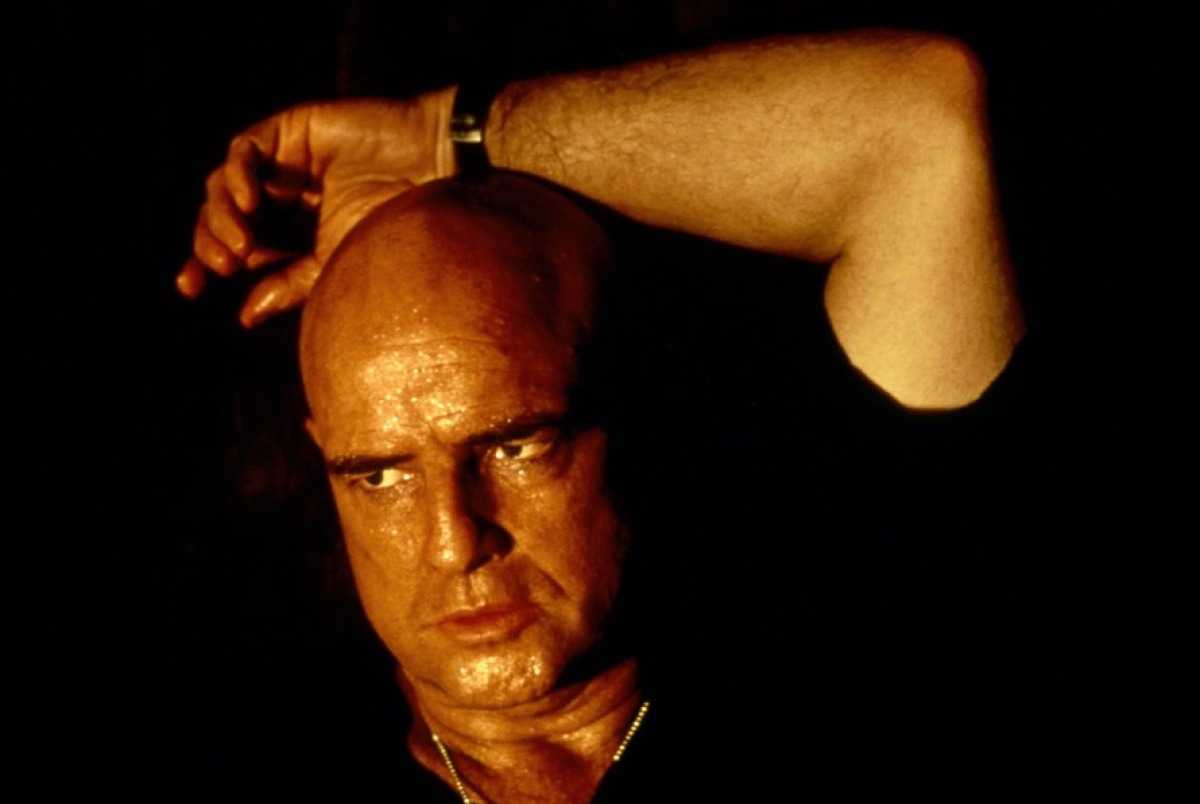
“You have no right to call me a murderer, you have the right to kill me.” Such is the logic of one Colonel Kurtz (Marlon Brando), a rogue commander holed up in the jungles of Vietnam. He of previous praise and military decoration, a battlefront legend who foresaw the futility of mankind and called it a day.
Brando, an emotionally ambitious performer, was notoriously difficult on the set of Apocalypse Now (1979), bringing weight issues and dialogue debate to an already stressed Francis Ford Coppola. Miraculously, the talent cobbled together worked beautifully – particularly in this five minute monologue that was largely improvised the day of the shoot.
Shrouded from the sunlight, Kurtz’s harrowing tale of hacked off arms and the virtues of moral terror hit hard. Awareness of his own insanity, aligned with the inner evils of man, are haunting to absorb, furthered by the knowledge that he “never wants to forget” the horrors witnessed during battle. It’s a performance that was labored over intensely, but the effortless pain conjured up onscreen quickly proved such struggles to be well worth it.
12. I Drink Your Milkshake – There Will Be Blood (2007)
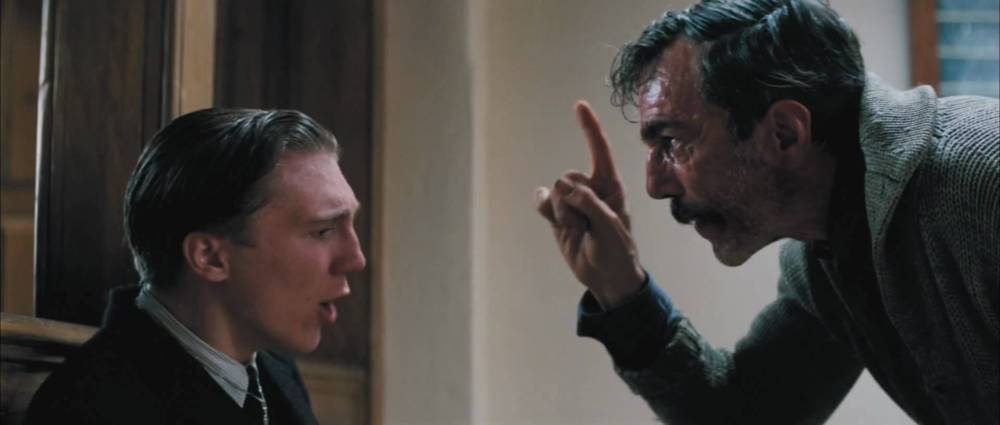
There Will Be Blood (2007) isn’t easy to watch. Soul-shaking and savagely composed by director Paul Thomas Anderson, it’s a film up to it’s neck in the jet black vices of jealousy, hatred, and greed. As a result, Blood’s climactic jolt of violence releases the resentment of a man housing an empty pit for a heart – and a bowling alley in his basement.
Occurring fifteen years after the events of the core narrative, handle-barred hedonist Daniel Plainview (Daniel Day-Lewis) is paid a visit from the scheming Eli Sunday (Paul Dano), only to enable an opportunity to tell the preacher what he really thinks of him.
It is a raw display. Day-Lewis, placing the bow upon his second Academy Award, goes on to annihilate the uber-sensitive Sunday, proclaiming him the “afterbirth that slithered out from [his] mother’s filth.”
The actor’s baritoned turn as Plainview is terrifying and hilarious in equal measures, made only more memorable by the iconic “I drink your milkshake!” mantra that guides this verbal dismemberment to a close. Bashing Eli’s head in with a bowling pin was merely a formality; the damage had already been done with one of the best trash-talkings in recent memory.
11. Sicilians – True Romance (1993)
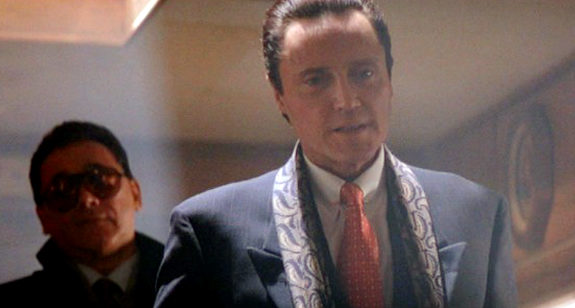
Christopher Walken and Dennis Hopper appear sparingly in 1993’s True Romance, so it’s a testament to the talent of these charisma kings that they supply the picture with it’s most iconic moment.
Held captive by consigliere Walken, Hopper’s former cop plays dumb while Clarence (Christian Slater) and Alabama (Patricia Arquette) make off with an unhealthy amount of mobster money. Knowing his number is up, Hopper sparks up a few and unspools one hell of a history lesson. Tony Scott is terrific, but it’s Quentin Tarantino’s script that truly shines in this, the greatest going out speech ever committed to celluloid.
For one, Walken’s cocksure smile is absolutely priceless. The swagger projected upon a bloody Hopper is intoxicating, though it soon dissipates with the news that Moors invaded Italy and bred with Sicilian women. “That’s why blond hair and blue eyes became black hair and dark skin,” he explains with smug satisfaction, before both burst out in barreling laughter. Hopper’s head gets blown off soon after, but this eggplant/cantaloupe comparison will live on forever.
10. Seize The Day – Dead Poets Society (1989)
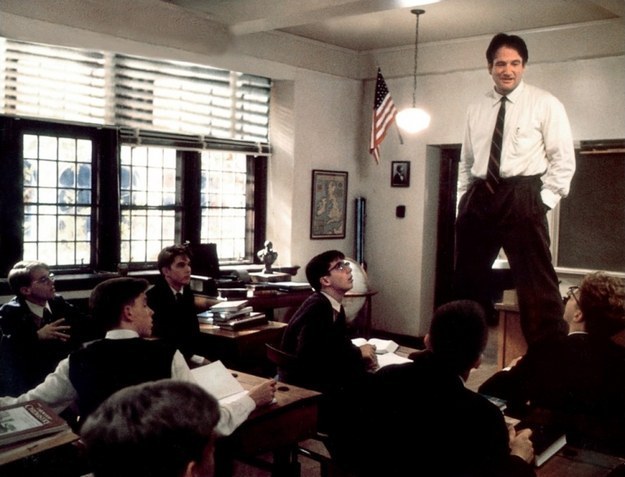
Robin Williams was a one-of-a-kind performer. A comedic whiz kid and dramatic ace, his varied range of ability always provided viewers a safe haven on the silver screen. As such, his talky talents served the art of speech extremely well; be it humor in Good Morning, Vietnam (1987) or heartfelt in Good Will Hunting (1998). Memorable as these monologues may be, however, both take a back seat to the inspired call to arms that is “Seize The Day” from 1989’s Dead Poets Society.
Playing pranky professor John Keating, Williams delivers a first day sermon that would inspire anyone who isn’t already fertilizing daffodils. Mortality is prevalent in this speech, a foreign idea to the batch of young boys presented him.
But by placing the faces of the past in front of them, Keating challenges each to seize the day, and to honor the legacy of those before them. “We are food for worms, lads,” the professor informs, as if compelled to shake them of their tender-footed aspirations. Safe to say, he was off to a great start.
9. All Men Are Created Equal – To Kill A Mockingbird (1962)
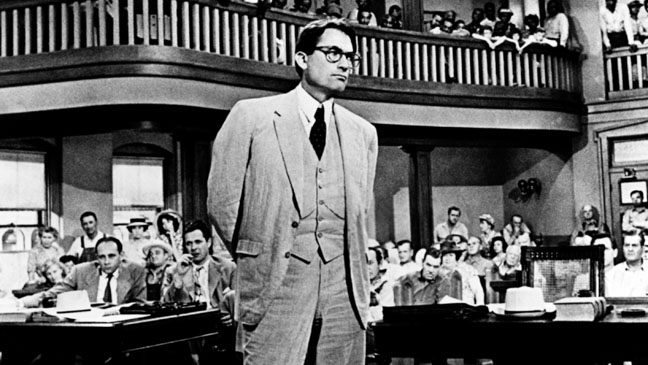
Atticus Finch is one of modern fiction’s true heroes. A single father who takes pride in his work, Harper Lee’s semi-autobiographical account constructed a pillar of integrity, someone unwilling to waver in his morals.
It took an actor of the utmost passion to bring such a persona to life, and Gregory Peck more than succeeds in what would prove to be his defining onscreen role. Harper was so pleased with the portrayal, in fact, that she gifted Peck her father’s golden watch, an understandable reaction given the power of his closing speech.
Up against the wall and losing the jury, Southern lawyer Finch makes a final plea for the life of black man Tom Robinson (Brock Peters). In a matter of minutes, the bespeckled expert explains with pinpoint precision why “this case should have never come to trial.”
Logic leads the way, yet before long, Finch breaks the wall of empathy and implores his fellow citizens to make the true, just decision. “All men are created equal,” he barks out. Such ideals shouldn’t be fantasy, but a “living, working reality!” that dispels the wrongs of yesterday and provides the harmony of tomorrow. Atticus Finch saw the future, and this enthralling scene is proof.
8. The Diner – Thief (1981)
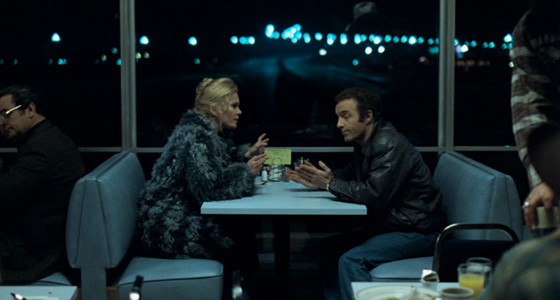
“You gotta forget time,” Frank explains, parked behind a diner booth with blonde bombshell Jessie (Tuesday Weld) at attention. “You gotta get to where nothing means nothing,” soon follows, further fleshing out the mindset of a man who survived a decade in prison.
As the titular con in 1981’s Thief, Frank is a patron saint of all who made a career from criminality, researched ad nauseum by rookie writer/director Michael Mann. Robber-turned-author John Seybold (pen name Frank Hohimer) was a crucial inspiration, though it is undoubtedly the work of Mann and actor James Caan that elevates this career-defining moment.
Starting out as an irritated interaction between the two, Frank and Jessie quickly discover a kindred connection. Jessie, a gal stood up one time too many, and Frank, a man making up for lost time. Waxing poetic over a jail spat turned ugly, the charming actor gives his all, and the desperation behind lines like “I can’t work fast enough to catch up” only enhance its potency. Confident while insecure, it’s a moment Caan qualifies as his finest on film. It’s tough to argue with him.